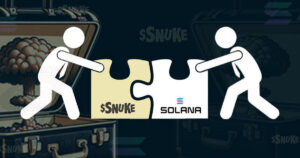PwC Report: Blockchain Technology to Reach $3 Trillion by 2030
Photo by Yiran Ding on Unsplash
PwC, a “Big Four” auditing firm, recently published research that found 84 percent of companies have either a “live” blockchain project or experiment underway.
China Primed to Lead Blockchain Innovation
The company surveyed over 600 executives from 15 countries–including the U.S., India, China, Africa and Sweden–with only 14 percent of respondents having “no involvement in blockchain technology.” (The sum does not equal 100 percent due to rounding.)
The study also found that 30 percent of respondents believe China is set to dominate blockchain development over the next five years, with only 18 percent backing the U.S.
Meanwhile, four out of five executives confirmed blockchain projects were underway at their organizations, with 15 percent of respondents having “live” networks up and running. Thirty-two percent of the firms are still developing their blockchain products, while 10 percent are running pilot models and 7 percent have “paused” research and development.
PwC cited a Gartner report forecasting a $3 trillion market value of blockchain business by 2030, with the survey recognizing ICOs and asset tokenization as a significant feature of the technology’s future.
Trust: A Compelling Concern
A vast majority of the respondents cited regulatory uncertainty and a lack of trust as the “biggest barriers” to mainstream technology adoption, with 45 percent terming it the most significant hurdle to adoption.
Steve Davies, a blockchain consultant at PwC, stated:
“Businesses tell us that they don’t want to be left behind by blockchain, even if at this early stage of its development, concerns on trust and regulation remain.”
Davies added that blockchain technology is “trustless” in nature, but companies “confront trust at nearly every turn.”
Davies noted blockchain technology presents a considerable ecosystem for companies and is unlike an “IT project,” meaning it involves put down rules, robust regulations, globally-accepted standards and perennial flexibility toward regulatory decisions.
Blockchain Frameworks Defined
Survey results are understandably dominated by finance and fintech service companies, with 46 percent respondents calling it the “leading” sector in the coming years. Other identified disruptors were healthcare, industrial manufacturing and energy.
The study also identified four “key areas” for startups and large organizations looking to integrate a blockchain-based framework into their business. These include making the business case, building an ecosystem, concentrating on user-centric design and navigating regulatory uncertainty.
According to Davies:
“A well-designed blockchain doesn’t just cut out intermediaries, it reduces costs and increases speed, reach, transparency and traceability for many business processes. The benefits can be compelling if organizations understand what their endgame is in using the technology, and match that to their design.”
























































